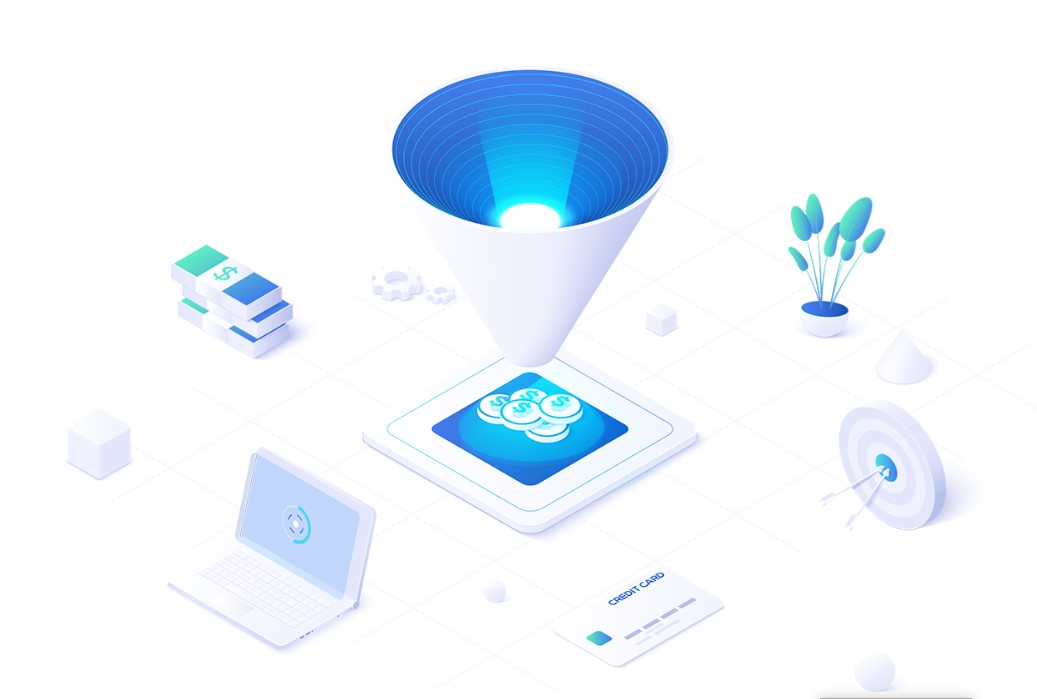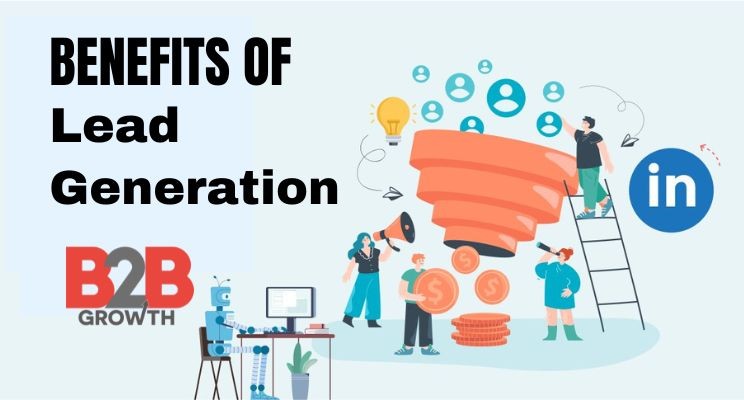Unlocking the Secrets to Successful B2B Lead Generation: A Comprehensive Guide
Are you struggling to generate high-quality leads for your B2B business? Are you tired of wasting time and resources on strategies that just don’t deliver results? Well, fret no more! In this comprehensive guide, we’re going to unlock the secrets to successful B2B lead generation.
In today’s competitive market, where every business is vying for attention, it’s crucial to have a solid lead generation strategy in place. After all, leads are the lifeblood of any successful business. They hold the key to expanding your customer base and driving revenue growth.
But here’s the thing – generating B2B leads isn’t as easy as it seems. It requires a deep understanding of your target audience, strategic planning, and utilizing the right channels effectively. That’s where this guide comes in handy.
Our team will guide you through every step of the process, from selecting the right lead generation channels to creating killer content strategies and leveraging social media. We’ll also delve into email Strategies, webinars and events for generating leads, measuring results with key metrics, nurturing leads into customers – everything you need for success!
So get ready to take your B2B Lead Generation game to new heights. Let’s dive in and uncover those secrets together!
Understanding Your Target Audience
To successfully generate B2B leads, it is crucial to have a deep understanding of your target audience. This means going beyond basic demographics and really delving into their pain points, challenges, and goals. By doing this research, you can tailor your lead generation efforts to resonate with your ideal customers.
Start by conducting thorough market research to identify the needs and preferences of your target audience. Use tools like customer surveys, interviews, and social listening to gather valuable insights about their pain points and motivations.
Once you have gathered this data, create buyer personas that represent different segments within your target audience. These personas should include key information such as job title, industry, goals, challenges, preferred communication channels, and buying behavior.
With these buyer personas in hand, you can craft targeted messages that speak directly to the needs and interests of each segment of your audience. This will help you stand out from the competition and capture their attention.
Additionally, consider leveraging data analytics tools to gain further insights into the online behavior of your target audience. Metrics such as website engagement, email open rates, and social media interactions can help you refine your lead generation strategy.
Remember that understanding your target audience is an ongoing process. As markets evolve and customer preferences change over time,
continuously monitor trends and adapt accordingly to stay ahead in the game. If you truly understand your target audience, you can deliver compelling content that resonates with them.
Identifying the Right Channels for Lead Generation
When it comes to B2B lead generation, one size does not fit all. Each business has unique needs and target audiences, which means it’s crucial to identify the right channels that will effectively reach your potential leads.
Start by understanding your target audience. Who are they? What industries do they belong to? Where do they spend their time online? By answering these questions, you can gain valuable insights into which channels are most likely to resonate with your audience.
One popular channel for B2B lead generation is LinkedIn. With its professional network of millions of users, LinkedIn provides a platform for connecting with decision-makers and industry professionals in your niche. Creating engaging content and participating in relevant groups can help position yourself as an authority and attract qualified leads.
Another effective channel is search engine optimization (SEO). By optimizing your website with relevant keywords and creating high-quality content, you can increase organic traffic from search engines like Google. This targeted traffic has a higher chance of converting into leads since they have actively searched for information related to your products or services.
Email marketing remains a powerful tool for generating B2B leads. Building an email list of interested prospects allows you to nurture relationships over time through personalized communication. Providing valuable content such as newsletters or exclusive offers helps keep prospects engaged until they’re ready to make a purchase.
Social Media
Social media platforms like Facebook and Twitter also offer opportunities for lead generation. However, it’s important to choose the right platforms based on where your target audience spends their time online. For example, if you’re targeting young Experts in tech, platforms like Instagram or TikTok might be more effective than traditional social media networks.
In addition to digital channels, don’t overlook offline strategies such as attending industry events or hosting Sessions. These allow you direct access to potential leads who are already interested in topics related to your business.
Finding the right channels for lead generation requires a combination of research, testing, and optimization. By understanding.
Creating a Killer Content Strategy for Lead Generation
When it comes to B2B lead generation, having a well-crafted content strategy is absolutely crucial. Your content is what will attract and engage potential leads, so it’s important to create killer content that resonates with your target audience.
First and foremost, you need to understand who your ideal customer is. What are their pain points? What challenges do they face in their industry? By gaining this insight, you can tailor your content to address these specific needs and position yourself as the solution.
Once you have a clear understanding of your target audience, it’s time to choose the right types of content for lead generation. This could include blog posts, whitepapers, case studies, videos, or webinars. The key is to provide valuable information that educates and informs your prospects.
In addition to creating valuable content, it’s also important to optimize it for search engines. By keywords incorporate into your titles and throughout the body of your content, you can increase its visibility in search engine results pages (SERPs) and drive organic traffic.
Furthermore, distributing your content through various channels is essential for maximizing its reach. Utilize social media platforms like LinkedIn or Twitter where professionals in the B2B space congregate. Share snippets of your blog posts or promote upcoming webinars on these platforms to generate interest among potential leads.
Webinars and events are also powerful tools for generating leads within the B2B realm. Hosting informative webinars allows you not only showcase expertise but also capture contact information from attendees who are interested in learning more about how you can help them solve their business challenges.
To measure the success of your lead generation efforts through different channels, it’s important to track key metrics. This includes tracking website traffic, bounce.
Leveraging Social Media for B2B Lead Generation
Social media has become an essential tool for businesses to connect with their target audience. In the realm of B2B Lead Generation, social media platforms offer a treasure trove of opportunities. With billions of users worldwide, platforms like LinkedIn, Twitter, and Facebook provide a vast pool of potential leads waiting to be tapped into.
One way to leverage social media is by creating engaging and informative content that resonates with your target audience. By sharing valuable insights and industry knowledge through blog posts, videos, or infographics, you can position yourself as an expert in your field and attract the attention of potential leads.
Another effective strategy is to engage directly with your prospects on social media. Responding to comments or inquiries promptly shows that you value customer engagement and are interested in building relationships. Additionally, participating in relevant industry discussions or joining LinkedIn groups allows you to establish connections with key decision-makers who may eventually become leads.
Moreover, paid advertising on social media platforms can also yield great results for B2B lead generation campaigns. By targeting specific demographics based on job titles or industries relevant to your business, you can reach the right people at the right time.
It’s important not only to focus on generating new leads but also nurturing existing ones through social media channels. Keeping your followers engaged with regular updates about new products/services or sharing success stories from satisfied customers can help build trust and loyalty over time.
In conclusion, social media presents endless possibilities when it comes to B2B lead generation. By strategically utilizing these platforms’ features and capabilities such as content creation/profiling tools Interactivity in targeted advertising engagement Companies can unlock their true potential in reaching their desired markets effectively.
The Role of Email Marketing in B2B Lead Generation
Email marketing plays a crucial role in B2B lead generation. With the ability to directly reach out to potential customers, email campaigns provide a personalized approach that can yield impressive results.
When it comes to email marketing for lead generation, it’s important to have a well-defined strategy in place. Start by building targeted lists of prospects who have shown interest in your industry or product. Segment these lists based on factors like job title, company size, or location to ensure your messages are relevant and resonate with recipients.
Crafting compelling and engaging emails is key. Your subject line should be attention-grabbing and concise, while the body of the email should provide valuable content that educates and informs readers about your offering. Incorporate clear calls-to-action (CTAs) that prompt recipients to take the desired action – whether it’s signing up for a webinar, downloading an eBook, or scheduling a demo.
Automation tools can streamline your email marketing efforts by allowing you to send targeted messages at specific stages of the buyer’s journey. Drip campaigns can nurture leads over time by delivering relevant content based on their engagement with previous emails.
Regularly analyze metrics such as open rates, click-through rates (CTR), and conversions from email campaigns. This data will help optimize future campaigns and identify areas for improvement.
Leveraging email marketing effectively can significantly contribute to successful B2B lead generation efforts. By creating tailored messages and utilizing automation tools for personalization and nurturing leads throughout their journey, businesses can maximize their chances of capturing qualified leads through this powerful channel.
Utilizing Webinars and Events for Generating Leads
Webinars and events have emerged as powerful tools in the realm of B2B lead generation. These interactive platforms allow businesses to showcase their expertise, engage with potential clients, and ultimately convert them into valuable leads. But how can you optimize webinars and events to generate high-quality leads?
It’s crucial to choose topics that resonate with your target audience. Address pain points or challenges they may be facing and offer insightful solutions. By providing valuable content during these sessions, you not only position yourself as a trusted authority but also capture the attention of potential prospects.
Promote your webinar or event through various channels – social media platforms, email marketing campaigns, industry forums – wherever your target audience is most active. Create enticing invitations that highlight the benefits attendees will gain from participating.
During the actual webinar or event, make sure your presentation is engaging and interactive. Encourage participation through Q&A sessions or live polls to foster a sense of connection between participants and presenters.
Don’t forget about post-event follow-ups! Send personalized emails thanking attendees for their time while offering additional resources or special offers tailored specifically to their needs.
By harnessing the power of webinars and events effectively, you can build trust with potential clients while generating qualified leads that are more likely to convert into customers down the line.
Measuring and Analyzing Results: Key Metrics to Track
Measuring and analyzing results is a crucial step in any successful B2B lead generation campaign. Without proper tracking, it’s impossible to know what strategies are working and where improvements can be made. But with so many metrics available, which ones should you focus on?
Here are some key metrics to track:
1. Conversion rate: This metric tells you how many leads are converting into customers. It’s important to monitor this closely as it directly affects your bottom line.
2. Cost per lead: Understanding the cost of acquiring each lead is essential for budgeting purposes. By tracking this metric, you can identify areas where costs can be reduced or optimized.
3. Return on investment (ROI): Calculating the ROI of your lead generation efforts allows you to determine if your marketing campaigns are generating enough revenue to justify the cost.
4. Lead quality: Not all leads are created equal. Tracking metrics like lead scoring and qualification rates helps ensure that you’re attracting high-quality prospects who are more likely to convert.
5. Customer lifetime value (CLV): This metric measures the total revenue generated by a customer over their entire relationship with your business. By knowing CLV, you can focus on acquiring leads that have higher potential for long-term profitability.
By consistently monitoring these key metrics, you’ll gain valuable insights into the effectiveness of your B2B lead generation efforts and make data-driven decisions to optimize performance moving forward.
Tips for Nurturing and Converting Leads into Customers
When it comes to B2B Lead Generation, the real value lies in converting those leads into loyal customers. But how do you successfully nurture your leads and guide them through the conversion process? Here are some tips to help you effectively move prospects down the sales funnel.
Personalization is key. Tailor your messaging and content to address the specific pain points of each lead. By showing that you understand their challenges and can offer solutions, you build trust and credibility.
Another crucial tip is to establish clear communication channels. Make it easy for leads to reach out to you with any questions or concerns they may have. Promptly respond to inquiries and provide helpful information that moves them closer towards making a purchase decision.
Additionally, implementing an effective lead nurturing strategy is essential. This involves sending targeted emails, providing valuable resources such as eBook's or whitepapers, and offering personalized demos or consultations. By consistently engaging with leads at different stages of their buyer’s journey, you increase the likelihood of conversion.
Furthermore, don’t forget about social proof! Share testimonials from satisfied customers who have benefited from your product or service. This helps build credibility and confidence in potential buyers’ minds.
Closely monitor analytics throughout the entire process. Track metrics such as email open rates, click-through rates on landing pages, and conversion rates at each stage of engagement. This data will give insights into what strategies are working well versus ones that need improvement.
By following these tips for nurturing and converting leads into customers, you’ll be well on your way to achieving successful B2B lead generation results! Remember: every interaction counts when it comes to building relationships with potential buyers.
Leveraging Digital Marketing for B2B Lead Generation
In today’s digital age, traditional marketing methods are no longer sufficient when it comes to generating B2B leads. Businesses need to adapt and leverage the power of digital marketing strategies to effectively reach their target audience and generate high-quality leads.
One key aspect of digital marketing that can significantly impact lead generation is search engine optimization (SEO). By optimizing your website with relevant keywords and creating valuable content, you can improve your organic search rankings and attract more potential customers.
Another effective strategy is social media marketing. Platforms like LinkedIn, Twitter, and Facebook offer great opportunities for businesses to engage with their target audience through targeted advertising campaigns, informative content sharing, and networking.
Email marketing remains a powerful tool for nurturing leads. By providing valuable content directly to prospects’ inboxes on a regular basis, you can build trust and keep your brand top-of-mind when they are ready to make a purchase decision.
Content marketing is another crucial component of successful lead generation. Creating informative blog posts, eBooks, whitepapers, or videos not only positions your business as an industry expert but also allows you to capture contact information through gated content forms.
To maximize the effectiveness of these digital marketing strategies for lead generation, it’s important to regularly monitor analytics data such as website traffic sources, conversion rates per channel or campaign performance metrics. This will help you identify what works best for your business so that you can optimize your efforts accordingly.
In conclusion
Digital marketing offers numerous opportunities for B2B Lead Generation by leveraging SEO techniques, content creation, email campaigns, social media platforms etc.
Businesses must embrace these strategies in order to stay competitive in today’s market landscape.
Ultimately, the success of any B2B lead generation campaign lies in continuous testing, optimization, and adaptation based on real-time data analysis.
Don’t be afraid to experiment, test new ideas, and refine existing tactics until you find what works best for your unique business needs.
Case Studies
Now that we have explored various strategies and techniques for successful B2B Lead Generation, let’s dive into some Case studies through case studies. These examples will provide valuable insights into how companies have achieved lead generation tactics to drive business growth.
1. Company XYZ: Leveraging LinkedIn for Lead Generation
Company XYZ, a leading software solutions provider, wanted to expand its customer base and generate high-quality leads. They decided to leverage the power of LinkedIn by optimizing their company page, sharing relevant content, and engaging with industry professionals.
By consistently posting informative articles, participating in LinkedIn groups, and actively connecting with potential prospects in their target market, Company XYZ was able to establish themselves as thought leaders in the industry. As a result, they saw a significant increase in inbound inquiries and successfully converted many of those leads into paying customers.
Key takeaway: Utilizing social media platforms like LinkedIn can be an effective way to connect with your target audience and generate valuable leads.
2. Company ABC: Personalized Email Campaigns Drive Results
Company ABC Automates marketing designed specifically for B2B businesses. To capture more qualified leads from their website visitors, they Individualized email campaigns based on user behavior data collected through web tracking tools.
By analyzing visitor interactions on their website such as pages visited or content downloaded, Company ABC created tailored email sequences that addressed specific pain points or interests of each prospect. This highly targeted approach resulted in higher open rates, click-through rates (CTRs), and ultimately increased conversions.
Key takeaway: Implementing personalized email campaigns based on user behavior data can significantly improve engagement levels and drive better results in lead generation efforts.
3. Company DEF: Webinars – A Powerful B2B Lead Generation Tool
Company DEF is a global consulting firm specializing in digital transformation services for businesses across various industries. Recognizing the effectiveness of webinars as a lead generation tool within the B2B space,
they started hosting educational webinars on topics related to their expertise. By promoting these webinars through various channels.












